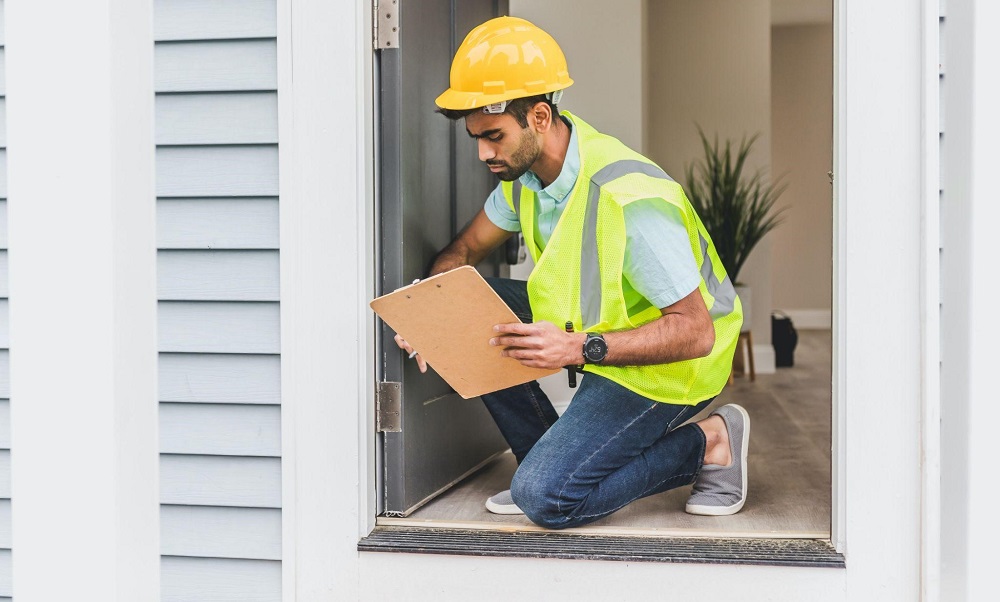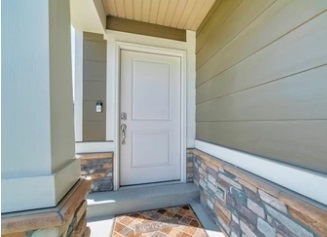
How to Prepare for a Successful Move to Denver: a Step-by-Step Guide
Moving to a new city can be both exciting and overwhelming. Denver, known for its vibrant culture, stunning natural beauty, and thriving job market, is

Building codes undergo revisions over time. And often, old residential buildings are slapped with violations because of it. Major renovations will also render a house unsafe if the homeowner did not seek prior inspection and approval. If your home is caught in local or state code changes, you probably wonder, can you sell a house not up to code?
Selling a house is possible even if it is not currently up to code, provided it is safe and livable and you find the right buyer. Some code violations are obvious but are minor and easy to fix.
Others identified by the home inspector may need laborious repairs. But, this does not mean you have to do the needed repairs yourself before putting it up for sale. You only need to negotiate with the prospective buyer and provide upfront information on the issues to give them the heads-up.
However, houses not in line with current code standards can be off-putting for a traditional buyer. It may take time to secure a good offer unless you sell it to investors. Companies like this can buy the house as-is, address the code violations, and take over most of the tedious parts of repair and inspection from the owner or seller.
All buildings, whether commercial or residential, have building codes developed by the International Code Council. For family dwellings, these codes are collectively referred to as the International Residential Code Council. These are the established standards that ensure the safety of the occupants and provide property protection.
The building codes vary in every state and city, as enforced by the municipality. And these too change according to the present situation in the locality. The City and County of Denver, for example, is seeking to adopt a new 2021 building and fire code, amending the present model. It is to ensure that the standards work for the specific climate and context of the city.
When a house is not up to code, it means it is currently not up to the safety standard requirements. More than the amendments, the depreciation and previous renovations can also raise home safety concerns. DIY home renovations alter the safety standards of the building most of the time.

Code violations are prevalent in older and renovated homes. The renovation process sometimes modifies the building and unknowingly compromises the safety of its occupants. Old houses are also built with different standards from the modern house models.
The most common code non-compliance that house inspectors often find is not limited to the following areas of concern:
Can you sell a house with building code violations? Here are some thoughts on the matter.
Some minimum building construction code violations are easy to fix. Before you begin working, you should check with your local building codes and requirements. A city inspector is not always often involved when it comes to a sale. But, you can still hire home inspectors who will determine the faults with the current safety requirements.
Sellers always have the option to repair a house that is not up to code or sell it as-is. However, it can affect the approval of a loan if the home buyer buys through a mortgage lender. Thankfully, lenders always communicate with the seller about each violation pending the mortgage approval.
If you want to sell a house not up to code, you only need to stipulate all its issues. You can negotiate with the home buyer on who will shoulder the repair to satisfy local building authorities.
You will have three remedies for selling a house not up to code: fixing it, lowering the price, or selling it “as is.”
How can you sell a house not up to code easily? Just fix the problem by hiring professionals.
Contractors can amend the damages to adhere to the standards and bring the house up to code. Unfortunately, it also raises the problem of budget and the time it will take for the work to wrap up. For some sellers, it can be tedious and time-consuming, especially if they want to expedite the sale.
Sellers will not only consider the expenditures and their timeframe for fixing code violations. It also depends on the scope of the problem and the legal requirements that the local authority may impose.
The advantage of shouldering the needed repairs is having more leverage in the seller market. Some issues are easily repaired and are generally manageable. There are instances, however, when replacement is necessary rather than just repairing them. An example of this is piping problems. When pipes are damaged, replacing them is better than having them repaired. But, this will also put a strain on the budget.
Can you sell a house not up to code if you do not want to deal with the repair? You can reduce the price if the house does not pose a major safety or health threat. Scrapping the sale price is like offering an incentive to potential buyers willing to assume responsibility for the violations.
Sellers can also offer what is called a repair credit. It is a dollar amount granted to the buyer to cover the cost of a requested repair. An example of repair credit is when a roof assembly may need repair but is not convenient while there are still occupants. Sellers can offer repair credit to cover up for the conservative estimate of repairs, which is taken from the proceeds of the sale.
But most lenders do not allow this kind of concession of the buyer and seller. That’s because they cannot guarantee if the buyer would perform the repair or if it is warranted.
Thus, the safest way of issuing credit is to reduce the home sale price by the total amount of the estimated credit. It becomes the new purchase price of the property, and the seller can walk away with the same amount of money.
Listing the house for sale “as-is” means that the seller does not intend to repair it before or after the sale. You may sell the house as-is but attaching the label makes the listing unattractive and less appealing. It is another way of telling the buyer that a repair is needed for the house but is uncertain of which parts.
At what drawbacks can you sell a house not up to code as-is?
The advantage of instant selling the house as-is is the speed. Sellers may not also need to disclose all property defects, and buyers will shoulder the risks.
But, the pool of buyers interested in a house selling “as-is” is relatively small.
It is also hard to sell burdensome houses on a loan this way. Most mortgage lenders do not allow purchasing this kind of offer with the certainty of repair jobs. It may also make a major cut on the selling price of the property, with buyers haggling for its price.
Yes, it is possible to sell a house with local building code violations. When house inspectors assess what should be repaired, the seller must address it. The seller can either fix the damage themselves or pass the responsibility to the buyer.
It can be tricky and difficult to dispose of a house that is not up to code compliance. But if you know your way around, there are ways you can easily let it go sans the burden of costly repairs.
Listing your house that is not up to code for sale goes with the legal standards. The seller needs to specifically disclose the nature of the code violations as a caution to buyers. Buyers should be aware of the potential additional cost they can incur in buying the house.
In Denver, the doctrine of caveat emptor (buyer beware) is overruled by Colorado’s State Disclosure Requirements. Sellers are required to disclose the current conditions of the property for sale. If the seller fails to comply with the obligation, he is liable for the cost and fees associated with the nondisclosure.
Depending on the buyer, they may or may not bite into the idea of buying a house not up to code. More than safety, the impending fines and penalties the city enforces seem to make it a revolting deal.
Most buyers do not want to deal with repairs regardless of the bid price. It will also stall the process, not just in making the repairs but also in finding agents and marketing the property.
But then again, if you are selling a house in Denver, you have the option to negotiate it with investors for a cash offer.
If you want to easily dispose of your property without the liabilities of paperwork and repairs, check on webuyhousesindenver.org. We will make the deal easier for you with a price offer that does not devalue the property.
Our team of house experts will take care of code violations and requirements without hidden charges and hidden commissions. We Buy Houses in Denver will make selling your house stress-free and hassle-free. With us, you can sell the house as-is, sell it fast, and get a fair cash offer.
The latest real estate news, forecasts, insight, and advice are brought to you by the leading authorities in the Denver housing market. We have ears and boots on the ground in the Mile High reporting the facts. Extensive research goes into all our articles and we gather information from trusted real estate experts, renowned local Denver housing specialists, home buyers, and more. We buy houses Denver and as accomplished professionals with a proven track record, we now want to share our experiences with you. Please enjoy!


Moving to a new city can be both exciting and overwhelming. Denver, known for its vibrant culture, stunning natural beauty, and thriving job market, is
Value add in real estate means finding ways to make a property more valuable. This can include things like renovating, improving operations, or changing how
Colorado Springs is a great location for rental property owners, but even in high-demand rental markets, selling your rental property sometimes makes financial sense. The
We’re a service-focused, home buyer that specializes in helping homeowners get rid of burdensome houses quickly. We are Colorado cash buyers who can buy your house fast with a fair all-cash offer. Imagine an instant online quote to sell as-is, without realtors and on your timeline! As a house buyer that’s what we offer. Therefore, if you need to sell your house fast and need a trusted professional home buying company look no further because we buy houses fast for cash.
We Buy Houses In Denver, 1337 Delaware St, Denver, CO 80204